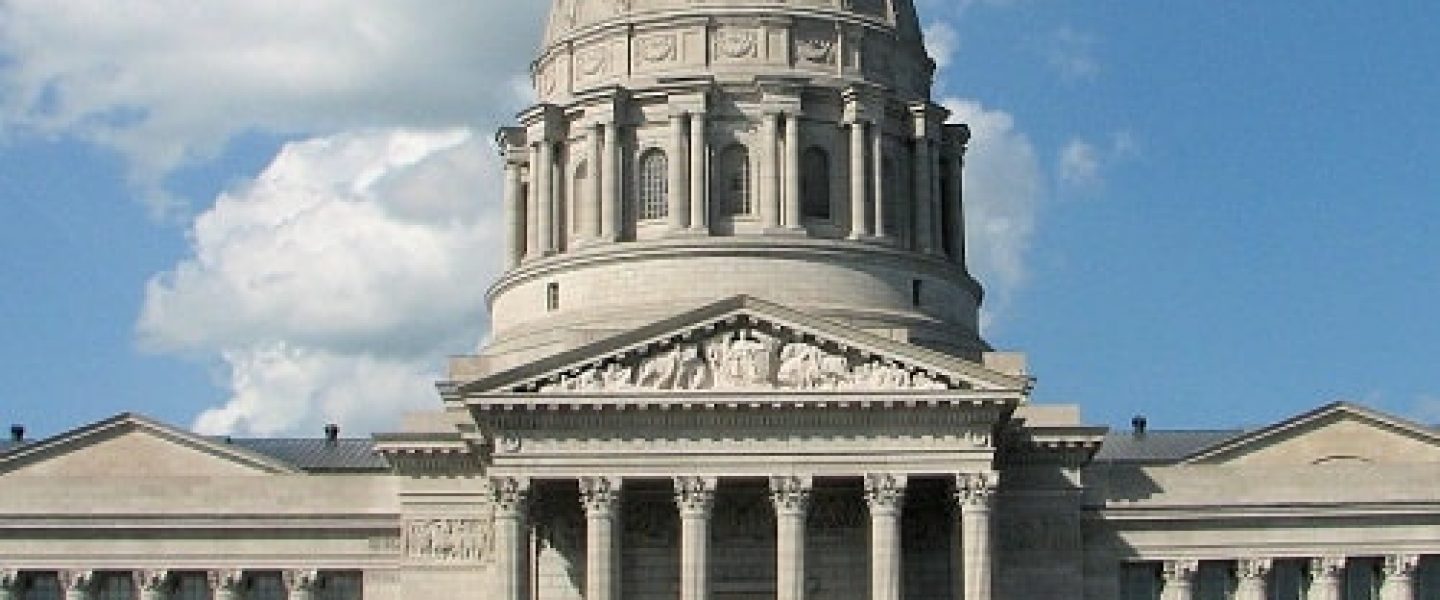If you were to ask Representative Shawn Rhoads (R – West Plains) generally how he feels about taxes, I suspect you would get a grumbling, fist-shaking, “Dadgum gubment!” type of response. That happens a lot down in my hometown. So naturally, Representative Rhoads is one of the most conservative members of the Missouri General Assembly. He usually falls on the side of civil liberties and property rights, with minimal government interference.
So why would Rhoads introduce a new tax bill into the Missouri state legislature? For his own benefit, of course. You see, in addition to being a Missouri Assemblyman, Rhoads is career law enforcement, working as a city and county lawman with the South Central Missouri Drug Task Force, one of many drug task forces in the state using public funds for questionable purposes. He has proposed a bill which would impose taxes on all illegal drugs.
Recently, in an effort to curb corruption, the US Department of Justice announced that it would reform its “equitable sharing program,” which allowed state and local law enforcement entities to bypass state laws relating to asset forfeiture. In a nut shell, any money that is earned from seized property associated with crime is supposed to be returned to state coffers and given to Missouri schools. But for decades a federal loophole has allowed local and state law enforcement to get around these laws by routing all money through federal law enforcement first, which then keeps 20 percent for itself and returns 80 percent to the local law enforcement entity. That money is often used for things such as SWAT gear and other “toys” as described in this video of Columbia City Police Chief Burton in 2012, who literally calls asset forfeiture “Pennies from Heaven”!
Now that the “equitable sharing” federal loophole has been somewhat restricted, any property seized in many drug interdictions (by far the most profitable area of crime) will actually have to go to Missouri schools instead of police departments. Rhoads’ solution to this personal pay problem was included in his bill, HB 1138, which would mandate that all taxes be reported to the State Department of Revenue within 48 hours, and that the moment the offender receives a letter in the mail, the taxes estimated are due upon receipt. If taxes are not paid immediately, including interest and penalty, THE DEPARTMENT OF REVENUE “SHALL USE ALL MEANS AVAILABLE TO COLLECT THE ASSESSMENT FROM ANY PROPERTY IN WHICH THE DEALER HAS A LEGAL, EQUITABLE OR BENEFICIAL INTEREST” and place said revenues in a fund exclusively for drug task forces. 20 percent of the funds would go toward cost of administering the law, 10 percent would go to drug treatment, and 70 percent would go to local drug task force law enforcement.
Representative Rhoads’ proposed bill is not only obvious in intent, but also ludicrous in nature.
First, placing tax stamps on illegal drugs has already been shot down in several courts, including the Kansas State Supreme Court. While there may be states which still have this law on the books, and garner money from such law, the fact of the matter is that a good lawyer should be able to argue this provision away. Rhoads claims that this would not create any greater punishment on people who are convicted, and yet that is precisely what the courts found when they have struck down drug tax stamps, stating that they violate double-jeopardy laws.
Second, the General Assembly ought not be foolish enough to attempt to pass a tax on its own. According to the well-known Hancock Amendment, which was added to the Missouri Constitution in 1980, Missouri cannot pass new taxes without a vote of the citizens. And while Representative Rhoads and I do both agree that drug dealers ought to be taxed, I disagree that taxation in an illegal market is in any way effective.
As it stands, Rhoads bill has been introduced, assigned to the Emerging Issues committee, and given public testimony. This is the same committee which heard HB 800 earlier this month, where numerous Missourians (plus Montel Williams) testified on medical marijuana. At the moment, it remains to be seen if either bill will go any further. Regardless, if Rhoads really wants to pass this measure, he’s going to have to take it to a vote of the people.
And if that’s the case — bring it on. We’ll see how popular drug task forces are when compared to an emerging market that brings jobs, medicine, revenue for education and infrastructure, and — oh yeah — increased public safety.
Help Show-Me Cannabis continue the fight! Contribute $10 or $25 to cannabis reform today.
Source: Show-Me Cannabis



























